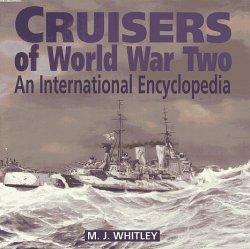The Augustinian Hermit Gregory of Rimini (aka de Arimino, Ariminensis) was born around 1300 in or near the Italian city of Rimini on the Adriatic coast, about 160 km south of Venice. He probably joined the Augus-tinians in his hometown, where he would have begun his elementary studies. We are uniquely fortunate to have detailed information about his career from a papal letter of January 1345, in which Clement VI supports Gregory’s ambition to be promoted to master of theology at the university of Paris. The data the Pope provides suggest that the Augustinians sent Gregory to their Paris convent to study theology in 1322 or 1323, when Clement (Pierre Roger, OSB) was himself active in Paris as a theologian. For six years, Gregory remained at his order’s main studium generale, attached to the university, where he would have learned the theories of John Duns Scotus, Durand of Saint Pourcain, and Peter Auriol, perhaps via contact with such Augustinian scholars as Gerard of Siena, James of Pamiers, and Michael of Massa.
From 1328 or 1329, his order assigned him to teach theology at important Augustinian studia in northern and central Italy: Bologna, Padua, and Perugia. Separate documentary evidence confirms that, at least from late 1332 to early 1337, Gregory was lector at the order’s studium in Bologna, the city that housed the greatest law faculty of the medieval world. Since the General Chapter of the Augustinian Order was held at Siena in 1338, perhaps this was the occasion of his being transferred from Bologna. Clement’s letter suggests that Gregory first went to Padua and then to Perugia, but it is possible that his stay in one of those cities took place before his sojourn in Bologna. Although he could have come into contact with the works of the Oxford Franciscans William of Ockham and Walter Chatton while at Paris, is it probable that his extensive knowledge of their writings and certainly those of later Oxonian theologians, especially the Franciscan Adam Wodeham and the secular Richard FitzRalph, was acquired in Italy, whither exciting new English ideas had spread by the 1330s.
During the academic year 1340-1341, perhaps at the Augustinian General Chapter meeting in Montpellier in 1341, the Augustinians ordered Gregory to return to Paris, this time to teach as bachelor of theology at the central studium ofhis order’s school system. After a year or two of preparation, it seems that Gregory delivered his lectures on the Sentences during the 1343-1344 school year. It is likely that Pope Clement’s letter had the desired effect and that Gregory became Parisian master of theology in 1345. Traditionally, he would have been obliged to remain at Paris to act as regent master, and in 1345-1346 he would have presided over and determined a quodlibetal disputation while making revisions on his Sentences commentary, removing certain passages for the final written version (these deleted passages are known, counterintuitively, as the additiones, and have been included in the recent critical edition of Gregory’s Sentences commentary).
In late 1346, as master of theology, Gregory was back home in Rimini, but in 1347 he was again teaching at the Augustinians’ Padua studium. He spent several years in Padua, until in 1351 the Augustinian General Chapter at Basel assigned him to return again to Rimini to teach theology at the newly founded studium there. He was no doubt still based in Rimini when, on 20 May 1357, he was elected prior general of the Augustinian Order at the General Chapter held in Montpellier, replacing another towering figure in Augustinian theology, Thomas of Strasbourg. It was perhaps as prior general that Gregory produced his question on usury. He remained at the head of the order until his death in late 1358.
Gregory’s doctrinal influence earned him the nicknames Lucerna splendens, Doctor acutus or authenticus, and ‘‘Torturer of Infants.’’ Compared to most other major Scholastics, however, very little survives from Gregory’s pen. Some of his correspondence as prior general has been preserved, as well as biblical commentaries. A disputed question De usura, of philosophical interest, was printed in 1508 and 1622. But his reputation is built on his partial Sentences commentary based on his Paris lectures, covering the first two books of Lombard’s textbook. Numerous medieval manuscripts - 20 complete witnesses for book I alone - and some eight printings from 1482 to 1532 attest to its popularity, and at least one section, part 2 of book I, distinction 17, De intensione et remissione formarum corporalium, circulated as a separate treatise. It is one of the few large theological works of the fourteenth century to have received a complete critical edition, in six volumes.
Gregory’s work is generally characterized by clear and well-organized exposition; he most often endeavors to distinguish and explain various senses of the most important terms he is using on any issue, thereafter dealing with a number of earlier and contemporary views on the matter, in the process giving his own opinion. His thought exhibits, in the terms of Damasus Trapp (1956), both a logico-critical attitude and a historico-critical attitude. The first of these involves a critical stance toward the elaborate metaphysical systems that were popular especially in the thirteenth century; it also involves privileging the extramental singular in both ontology and cognition. The second of these attitudes is characterized by an attention to detail when it comes to citing and quoting other thinkers, from very recent authors like Peter Auriol, William of Ockham, and Adam Wodeham, to important earlier writers like Aristotle, Anselm, and, most significant of all to Gregory, Augustine. In addition to those two attitudes, perusal of Gregory’s Sentences commentary reveals a thinker who routinely draws razor-sharp distinctions, constructs arguments and analyses of impressive logical rigor, and offers coherent and often startling positions on a great number of issues. Indeed, Gregory was clearly rather uninhibited when it came to maintaining unusual views. Thus, he argued, against most of the Aristotelian tradition, for the possibility of actual infinites, prompting Anneliese Maier to call him ‘‘a radical infinitist’’ (Maier 1964:82-84), and in defending this view and the consequences of it for the continuum Gregory develops an analysis of the infinite that “represents a huge advance on that of his predecessors and contemporaries’’ (Cross 1998:109). In philosophical theology, Gregory argues for a fully deductive science of theology (Brown 1998:653-655), he stresses God’s absolute simplicity to such a degree that he denies any distinction whatsoever between the divine attributes and the divine essence, and he develops a Trinitarian theology of radical minimalism on which person, personal property, and essence are all strictly identical, while nevertheless the one God is three really distinct persons (Friedman 2010:158-164).




 World History
World History









